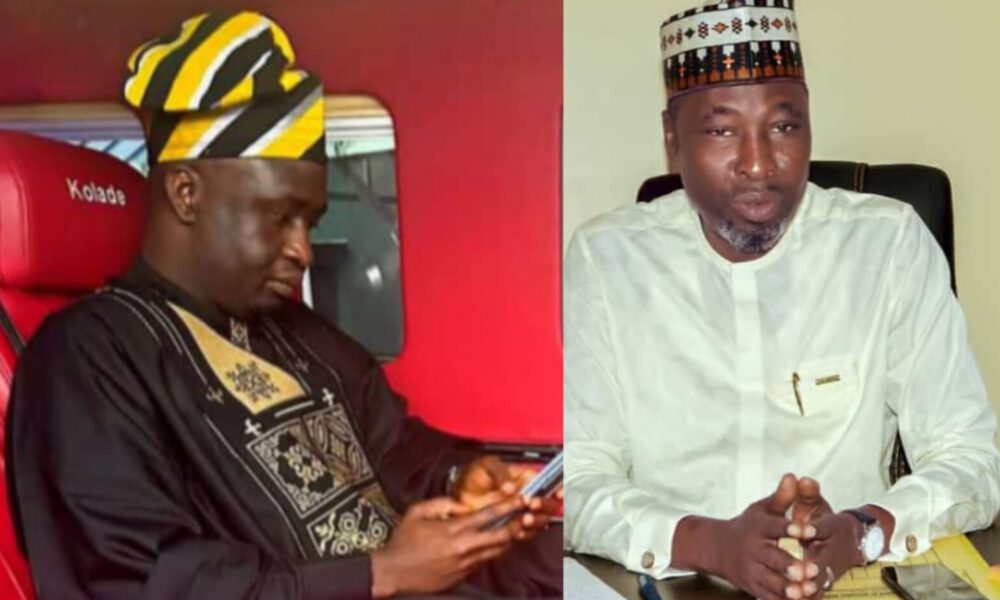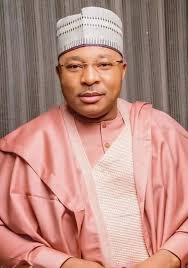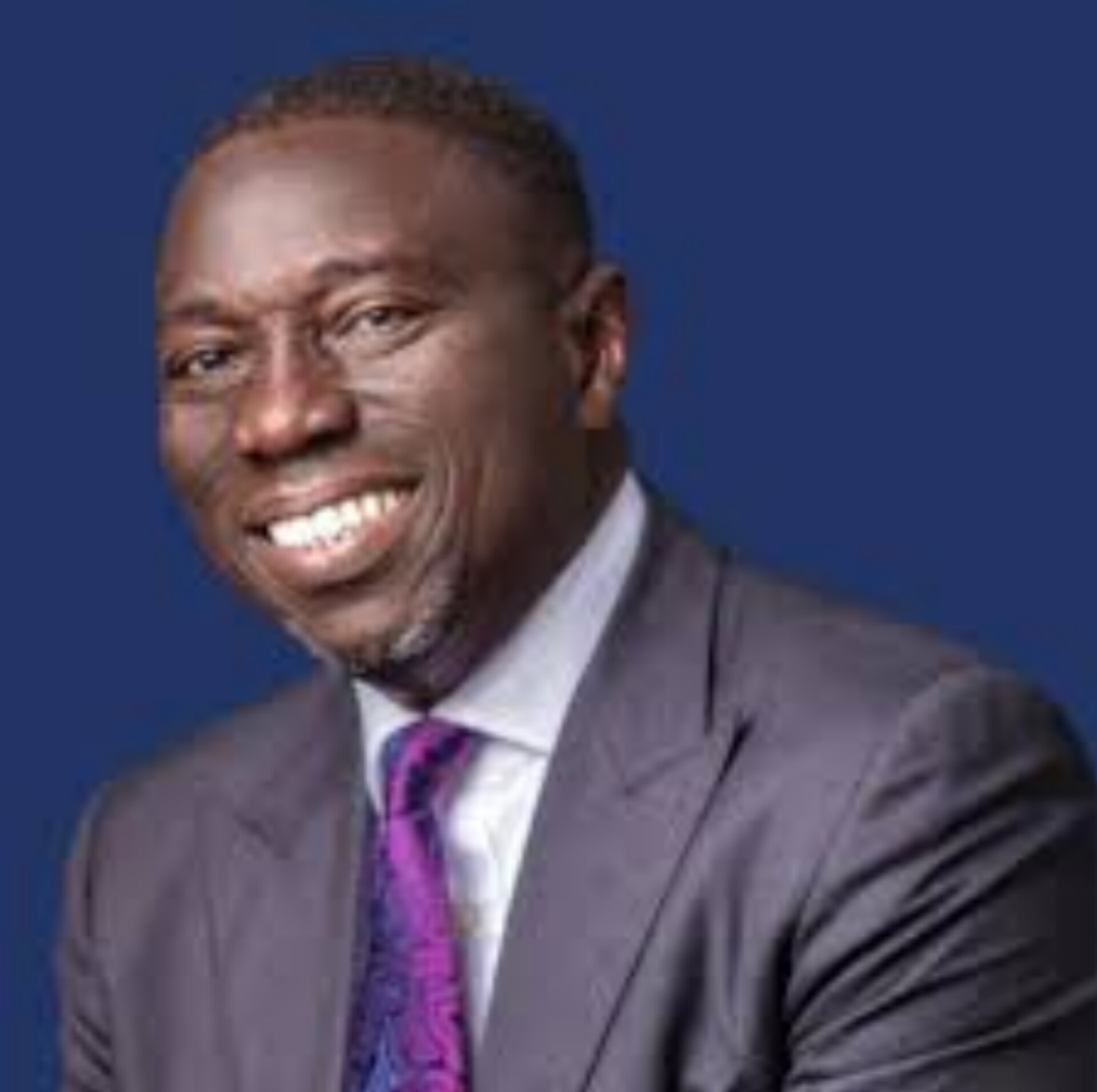By Wilberforce Edward
In the annals of leadership and community development, few individuals have left as indelible a mark on their communities as Dr. Emmanuel N. Musa and Hon. Hassan Mamman Barguma. As Adamawa State prepares for its next phase of governance post-2027, these two trailblazers stand out as beacons of hope, progress, and transformative change. Their combined vision, experience, and commitment to public service make them an ideal duo to lead the state into a brighter future.
Dr. Emmanuel N. Musa, a young but accomplished leader, has already demonstrated his capacity to drive meaningful development across Adamawa State. Over the past decade, he has initiated and influenced numerous projects aimed at uplifting the socio-economic conditions of the people. Through his personal connections with stakeholders around the globe, Dr. Musa has significantly reduced unemployment among the youth by facilitating opportunities for over 600 young men and women to join the armed forces and paramilitary establishments. His efforts extend beyond military placements; countless unemployed youths have also secured jobs in various Federal Ministries, Departments, and Agencies (MDAs), thanks to his relentless advocacy and networking skills.
But Dr. Musa’s contributions are not limited to employment creation alone. Recognizing the importance of infrastructure in fostering development, he has taken it upon himself to build and rehabilitate rural roads, construct bridges, and establish skill acquisition training centers that cater to all segments of society, particularly marginalized groups such as indigent children. These initiatives reflect his unwavering dedication to empowering communities and bridging gaps in access to essential services.
Perhaps most commendably, Dr. Musa has sponsored—and continues to sponsor—numerous indigent students from across Adamawa State to pursue higher education in tertiary institutions nationwide. By investing in education, he is ensuring that future generations are equipped with the knowledge and skills necessary to contribute meaningfully to the state’s growth and prosperity.
Complementing Dr. Musa’s achievements is Hon. Hassan Mamman Barguma, whose political career and community service credentials are equally impressive. Having served as Majority Leader of the Adamawa State House of Assembly between 2015 and 2019, representing Hong constituency, Barguma distinguished himself through his pragmatic approach to governance. During his tenure, he championed several people-friendly bills designed to address critical issues affecting his constituents and the broader populace. Beyond legislative work, Barguma invested heavily in infrastructural development, building and renovating schools, providing clean drinking water, and enhancing access to quality education—not only within his constituency but extending his reach far beyond.
Even after leaving office, Barguma remains deeply engaged in community development activities, leveraging his private business ventures to support initiatives that uplift lives. His commitment to serving others is evident in every project he undertakes, reinforcing his reputation as a dedicated servant-leader.
The synergy between Dr. Emmanuel N. Musa and Hon. Hassan Mamman Barguma presents a unique opportunity for Adamawa State. Both leaders share common values and aspirations for the state, making their collaboration a natural fit. While Dr. Musa brings innovative ideas and global connections to attract Foreign Direct Investment (FDI) and spur economic growth, Hon. Barguma contributes deep-rooted understanding of local needs and effective strategies for implementing grassroots-level solutions. Together, they form a formidable partnership capable of driving sustained progress and inclusive development.
It is worth noting that the current administration under Governor Ahmadu Umaru Fintiri has made significant strides in advancing the developmental agenda of Adamawa State. However, as we look toward 2027, it is imperative to consider fresh perspectives and new leadership paradigms that can build on existing successes and push the boundaries of what is possible. The duo of Dr. Musa and Hon. Barguma offers precisely this—a blend of youthful energy, visionary thinking, and practical experience poised to take Adamawa to greater heights.
Hon. Barguma, who is eyeing a seat in the National Assembly to represent the Gombi/Hong Federal Constituency, shares Dr. Musa’s passion for collective advancement. If elected, he will bring the same level of diligence and foresight that characterized his tenure in the State Assembly, working hand-in-hand with Dr. Musa to ensure that the voices and needs of Adamawa residents are heard and addressed at both state and federal levels.
In conclusion, while respecting the contributions of those currently occupying public offices, it is crucial for the electorate to carefully evaluate the potential of emerging leaders like Dr. Emmanuel N. Musa and Hon. Hassan Mamman Barguma. Their shared vision, complementary strengths, and proven track records suggest that they possess the qualities needed to steer Adamawa State toward a prosperous future. As voters ponder their choices ahead of the 2027 elections, they would do well to consider supporting leaders who embody the spirit of innovation, inclusivity, and integrity. Let us rally behind individuals who understand the power of unity and collective action, for in doing so, we secure a brighter tomorrow for ourselves and generations to come.
Let us think deeply and act wisely, bringing aboard leaders of like minds who will champion our collective development. In Dr. Emmanuel N. Musa and Hon. Hassan Mamman Barguma, Adamawa State may just find the perfect architects of its destiny.
Wilberforce Edward is a public affairs commentator writes from Abuja.





